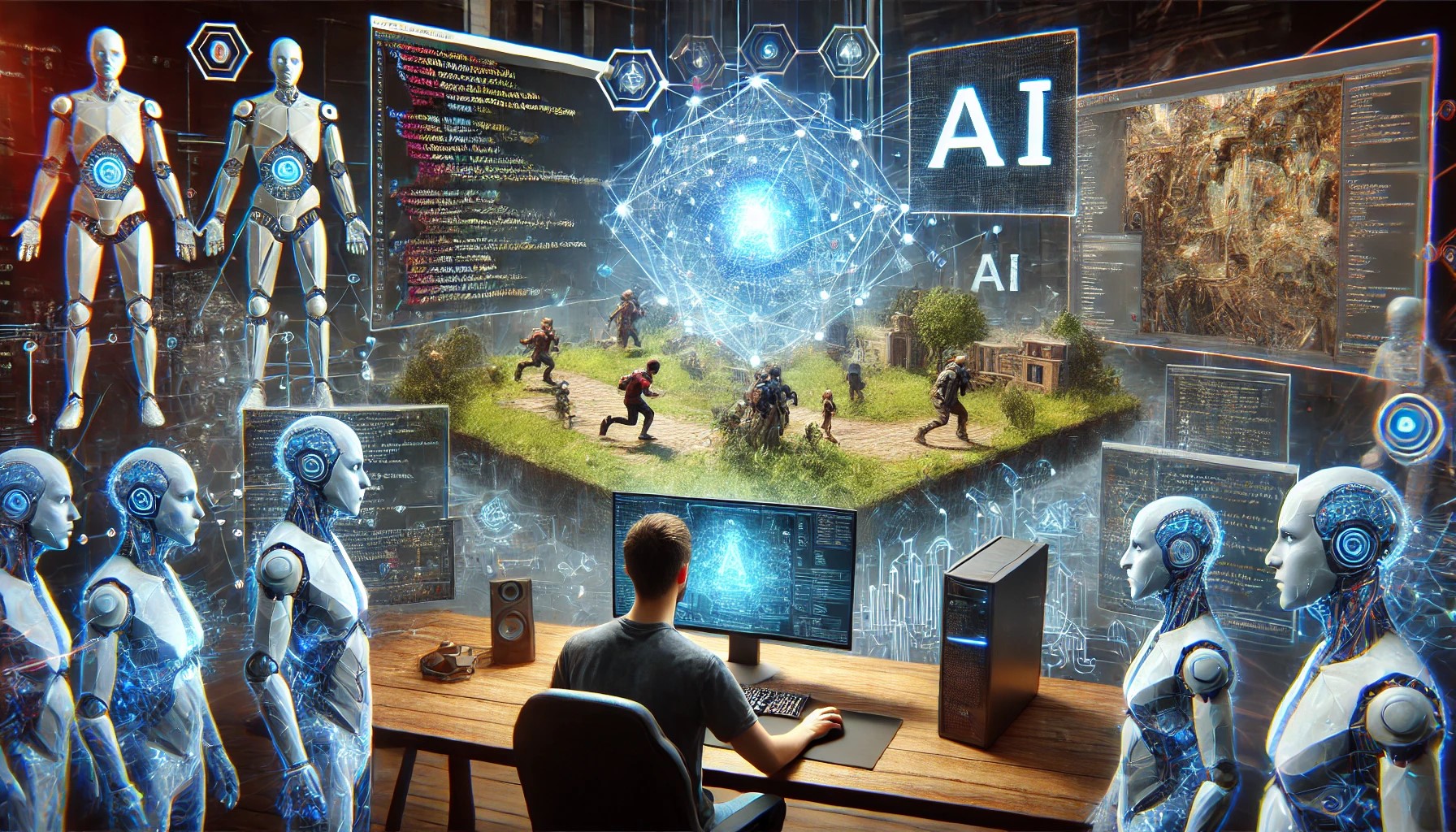AI is Revolutionizing Game Development: Enhancing Design and Player Experiences

Artificial intelligence (AI) is rapidly changing the landscape of game creation, with a critical role in improving both design and player experience. Controlling non-playable characters (NPCs) is a fundamental use of artificial intelligence in gaming. In the past, NPCs were frequently programmed to repeat behaviours, making their behaviour predictable. Today, AI enables NPCs to respond in real-time to player decisions, resulting in more dynamic and engaging interactions. These AI-driven NPCs make game settings feel more alive by responding intelligently to the environment and player actions, providing a new experience with each play.
AI has also transformed how game environments and levels are built, thanks to procedural content generation (PCG). Developers may now employ AI algorithms to produce large and complex landscapes, decreasing the amount of manual labour required to develop various surroundings. This enables an infinite diversity of gameplay, as shown in games like No Man's Sky and rogue-likes like Hades, where each new session introduces a different world or dungeon layout. AI-powered content development not only saves time but also improves replayability, ensuring that no two experiences are exactly the same.
AI not only creates smarter game environments but also makes games more personalized and responsive. Many current games use artificial intelligence (AI) to evaluate player behaviour and change difficulty and in-game challenges based on skill. This adaptive AI guarantees that games stay enjoyable for both new and seasoned players. AI-powered systems are also employed in narrative-driven games, where player choices dynamically influence the tale, giving players a sense of control over how the game progresses. This level of personalization heightens immersion, making players feel more connected to the game's universe and characters.
AI not only improves the gameplay experience but also the development process itself. AI-powered technologies can automate repetitive operations like testing and issue repair, hence shortening the development cycle. Game testing, which formerly needed significant human labour, has been improved by AI-driven simulations that can quickly uncover possible faults. Furthermore, AI tools can help with asset generation, lowering developers' effort and freeing them up to focus on more difficult jobs. This move has increased game development efficiency, allowing teams to create smarter, more imaginative games in less time.
To summarize, AI is profoundly altering the way games are made and played. AI is crucial to modern game innovation, from inventing intelligent NPCs and generating complex landscapes to improving the development process and delivering tailored player experiences. As AI technology advances, its involvement in game production will grow, resulting in increasingly immersive, dynamic, and adaptive gaming experiences.
Creativity Meets Code.
Join our mailing list
© Copyright xklsv 2026. All Rights Reserved
xklsv